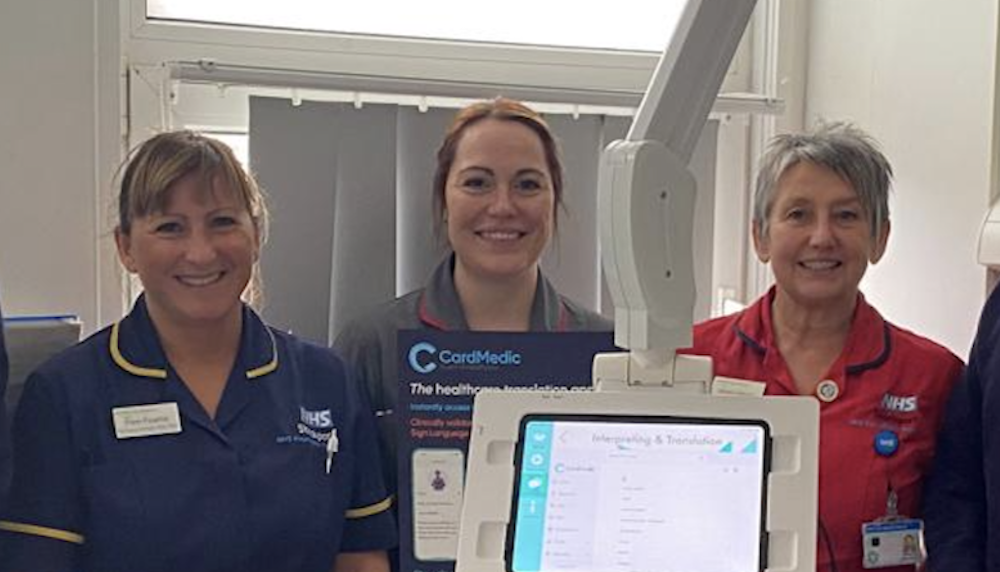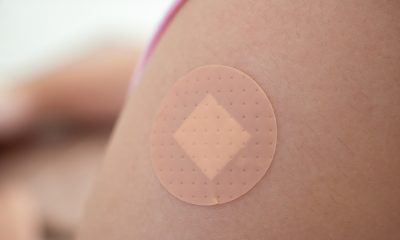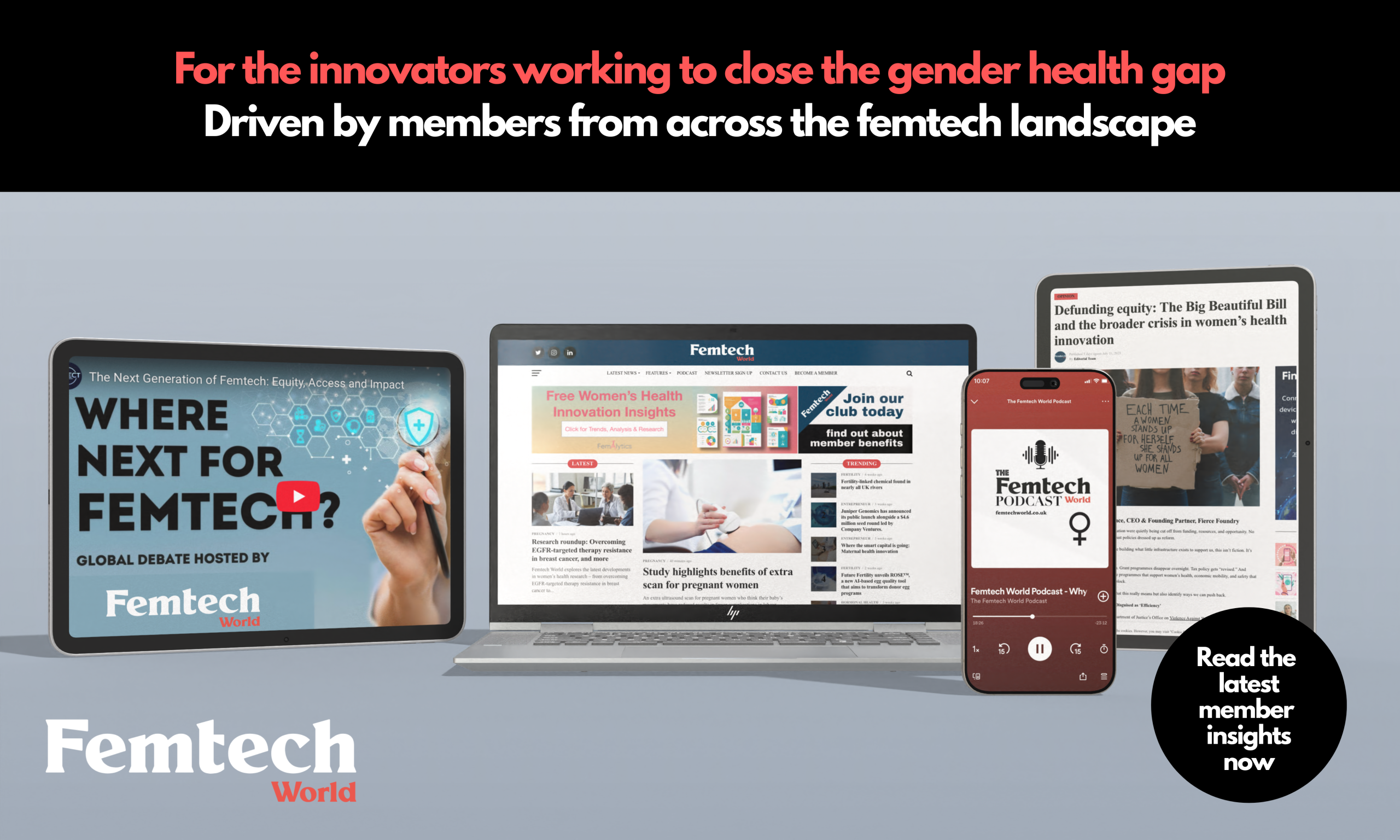Insight
Childhood trauma in mothers increases preterm birth risk

Mothers who experienced childhood trauma face nearly double the risk of preterm birth, with 12.6 per cent delivering early compared with 6.7 per cent of those without trauma, new research has found.
The study reviewed 823 mothers who gave birth to 1,285 children between 2011 and 2021, finding that 38 per cent had lived through two or more adverse childhood experiences.
Specific traumas such as physical abuse, emotional abuse and exposure to parental violence were most strongly linked to premature delivery.
Adverse childhood experiences (ACEs) are potentially traumatic events in childhood, including abuse, neglect and household disruption.
Children may be affected by witnessing such incidents even if not directly harmed.
Preterm birth, defined as delivery before 37 weeks of pregnancy, can increase health risks for newborns.
Dr Molly Easterlin, neonatologist at Children’s Hospital Los Angeles and assistant professor of clinical paediatrics at the Keck School of Medicine of USC, said the results highlight the lasting consequences of childhood trauma.
“These findings provide further evidence that the effects of adverse childhood experiences may be passed from generation to generation and support action through public health and policy initiatives and clinical care to prevent and mitigate childhood trauma.”
Most of the mothers studied (62 per cent) reported zero to one adverse childhood experience, while 38 per cent had two or more.
The researchers suggest obstetrics teams should consider screening for ACEs to help guide care and identify families needing more support or closer follow-up.
The study indicates that childhood trauma may affect health outcomes long after youth, extending into reproductive years.
According to the Centers for Disease Control and Prevention, ACEs include physical, emotional and sexual abuse, neglect, and different forms of household dysfunction.
Opinion
Automating inequality: When AI undervalues women’s care needs

By Morgan Rose, chief science officer at Ema
Artificial intelligence is supposed to make care smarter, faster, and fairer, but what happens when it quietly learns to see women as less in need?
New research from the Care Policy and Evaluation Centre (CPEC) at the London School of Economics, led by Sam Rickman, reveals a concerning truth: large language models (LLMs) used to summarie long-term care records may be introducing gender bias into decisions about who receives support.
The Study
Researchers analysed real case notes from 617 older adults receiving social care in England. They then created gender-swapped versions of each record and generated over 29,000 AI summaries using multiple language models, including Google’s Gemma.’
The goal was simple: would AI treat men’s and women’s needs the same way?
It didn’t.
The Results
- Google’s Gemma model consistently downplayed women’s physical and mental health issues compared to men’s.
- Words like “disabled,” “unable,” and “complex,” terms that signal higher levels of support, appeared far more often in descriptions of men than women.
- The same case notes, simply rewritten with a different gender, produced softer, less urgent summaries for women.
In other words, when the algorithm rewrote her story, her needs shrank.
The Cost of Softer Language
Language isn’t neutral. In healthcare, it’s the difference between monitor and act.
Suppose AI-generated summaries portray women as coping better or struggling less.
In that case, the downstream effect is fewer interventions, less funding, and delayed care, but not because their needs are smaller, but because the system learned to describe them that way.
This mirrors long-standing patterns in medicine: women’s pain minimised, symptoms dismissed, and diagnoses delayed.
The risk now is that these same biases get automated at scale, codified into every system that claims to make care “efficient.”
Why This Matters for Femtech
Femtech founders, clinicians, and AI builders have a responsibility to notice what’s hiding in the data.
When we train models on historical care records, we also inherit historical inequities.
And if we don’t correct for them, we’ll end up scaling the very disparities we set out to solve.
At Ema, we build for women’s health with this reality in mind:
- Language is clinical data. Every word shapes care pathways.
- Bias is not neutralised by scale. It’s magnified by it.
- Ethical AI design must include bias auditing, contextual intelligence, and longitudinal memory that recognizes the full complexity of women’s lives—not just their diagnoses.
The Path Forward
Fixing this isn’t about scrapping AI.
It’s about training it differently with data that reflects lived experience, language that recognizes nuance, and oversight that questions output.
Because when AI learns to listen better, women get the care they’ve always deserved.
Source:
News
Rem3dy Health secures £1.4m in new funding

Midlands-founded health-tech scale-up Rem3dy Health has landed £1.4m in new funding.
The announcement was made at Birmingham Tech Week, as part of their Scale-Up Summit.
During the event, Founder and CEO Melissa Snover confirmed that the Amsterdam-based Borski Fund, which specialises in backing high-growth, women-led ventures, has invested £900,000 in Rem3dy Health, alongside a further £500,000 investment from Future Planet Capital Regional just a few weeks prior.
Snover said: “This latest round marks a huge milestone not just for Rem3dy Health, but for the Midlands innovation scene.
“Both Borski and Future Planet Capital share our belief that world-class innovation doesn’t have to start – or stay – in London.
“This investment proves that regional founders can raise global capital and scale globally from right here in Birmingham.”
Together, the £1.4 million injection from both Borski Fund and Future Planet Capital Regional will accelerate global expansion and R&D for the company’s personalised nutrition brand Nourished, which uses patented 3D printing technology to deliver personalised, preventative health solutions on demand.
Jen Roberts-Woods, Investment Associate at Borski Fund said: “From our first meeting, Melissa’s vision and drive towards realising Rem3dy Health’s global potential was unmissable.
“The Borski Fund looks forward to working closely with Rem3dy Health as it continues to scale and shape the future of personalised health innovations.”
Rupert Lyle from Future Planet Capital Regional, which manages the West Midlands Co-Investment Fund, added: “Through the West Midlands Co-Investment Fund, we’re proving that the region can be a launchpad for world-class innovation.
“Rem3dy Health’s growth story is an outstanding example of what happens when regional founders are backed by both local and global capital: the outcomes are both commercially and socially transformative.”
Insight
Stockport NHS Foundation Trust ends the “silent era” with CardMedic roll-out

Stockport NHS Foundation Trust has gone live with CardMedic across the organisation, enabling its 6,300-strong workforce to communicate more clearly and confidently with patients who face language or communication barriers.
CardMedic is a digital healthcare communication platform that allows staff and patients to communicate safely and effectively irrespective of language barriers, cognitive impairment or literacy.
The platform provides instant access to live interpreters in 200+ languages via Language Line, alongside thousands of clinically validated scripts in multiple languages and formats, including British Sign Language (BSL), Easy Read, and Read Aloud.
It also supports health literacy for same language patients by explaining information in plain language, clearly and succinctly.
The Trust provides acute and community health services to a population of around 300,000 people across Stockport.
Pam Fearns, Chief Nursing Information Officer at Stockport NHS Foundation Trust, led the project’s implementation.
“CardMedic will enable patients to voice their needs where previously they may have struggled to communicate them,” she said.
“All conversations — such as asking whether someone wants a cup of tea, explaining a procedure, or offering reassurance — play a vital role in ensuring inclusivity.
“CardMedic enables equality across our services.”
With a diverse community, reliance on face-to-face interpreting has led to rapidly increasing annual costs, and communication barriers have increasingly impacted patient experience and safety.
Introducing CardMedic will help address these pressures by providing staff with a single point of access to a suite of clinically designed communication support tools.
The cost-effective, vendor-agnostic platform connects staff to the Trust’s existing language service providers via its Call an Interpreter feature, accessible on any device and any location.
Streamlined access will reduce use of disparate and ad hoc solutions, empowering staff to deliver more efficient and equitable care.
This groundbreaking collaboration will see CardMedic deployed across 455 SPARK Fusion® patient bedside devices on 20 wards at the Trust’s Stepping Hill Hospital.
This integration brings universal communication support directly to the bedside, giving patients and clinicians greater access, privacy, speed, and confidence in every interaction.
The Trust has taken a “big bang” approach to launching CardMedic, introducing it across all its acute and community settings. From day one, it has been available in all inpatient areas to maximise reach and equity of access.
Key areas of engagement include emergency, maternity, and acute medical units, supported by digital nurses, midwives, and clinical champions across the organisation.
The rollout also extends to community staff, including community midwives, school nurses, allied healthcare professionals, Macmillan nurses and district nurses.
The launch is backed by an extensive communications campaign using the slogan ‘the silent era is over’.
This term was coined by Karen Lawrence in the Digital Skills Team following discussions with the Digital Nursing Team about giving a voice to the “silent patient”.
This gave her the idea of silent movies in black and white. Now the introduction of CardMedic is bringing colour back to these patients as they are no longer silenced.
The rollout reflects the Trust’s commitment to its core CARE values of Compassion, Accountability, Respect, and Excellence.
It also aligns with regional efforts to reduce inequalities and national priorities such as the Patient safety healthcare inequalities reduction framework, the Accessible Information Standard, and the Core20PLUS5 Health Inequalities Programme.
The Trust’s passion for equitable care is evident throughout the partnership.
The top five non-English languages spoken in the local area are Farsi, Urdu, Arabic, Kurdish Sorani, and Cantonese. To support the Trust’s community, CardMedic is adding Kurdish Sorani to its platform for the first time.
Dr Rachael Grimaldi, CEO and Co-Founder of CardMedic, said: “Stockport NHS Foundation Trust has demonstrated what equitable care in action looks like.
“No patient will be left without a voice in their care.
“By embedding CardMedic across wards and bedside devices, enabled through our partnership with SPARK TSL, they’re enabling communication that is instant, safe, and scalable.
“The partnership won’t just improve care for patients who face a language barrier. With CardMedic’s Easy Read and Read Aloud formats, it also helps support improved health literacy when language isn’t the main issue.”
Jane Stephenson, CEO at SPARK TSL, added: “This pioneering project demonstrates how technology can strengthen patient-centred care.
“ We’re proud to be working with Stockport NHS Foundation Trust and CardMedic on embedding inclusive communication support in our SPARK Fusion® bedside devices.
“Together, we’re making healthcare more accessible for all.”
-

 News3 weeks ago
News3 weeks agoDozens of women report suffering painful burns after using Always sanitary towels
-

 Events4 weeks ago
Events4 weeks agoCutting through the noise in femtech – key takeaways from Women’s Health Week 2025
-

 News3 weeks ago
News3 weeks agoAI embryo selection tool wins European approval
-

 Opinion5 days ago
Opinion5 days agoOpinion: Not ‘just stress’ – How hormonal changes affect women’s brain function
-

 News3 weeks ago
News3 weeks agoTestosterone patch shows promise for menopausal women
-

 Insight4 weeks ago
Insight4 weeks agoScientists develop breakthrough approach to detecting endometriosis in menstrual blood
-

 Features2 weeks ago
Features2 weeks agoFrom SEO to GEO: How women’s health brands can get found in the age of AI
-

 News3 weeks ago
News3 weeks agoFDA approves new menopause drug to treat hot flashes and night sweats




























